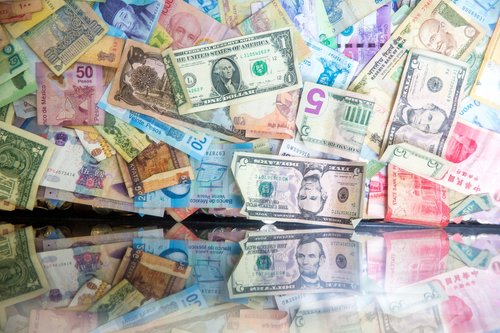The Most Significant Financial Agreement You’ve Never Heard About

and why you — as an American investor — are so lucky it happened…
The agreement was significant for the United States, as it established the US dollar as the world’s dominant reserve currency. This position of strength allowed the United States to finance its trade deficits and military expenditures by issuing large quantities of dollar-denominated debt, which other countries eagerly bought as a safe and reliable store of value.
data-animation-override>
“In fact, the US dollar’s share of global reserves has actually increased in recent years, despite the rise of China and other challengers.”
The Bretton Woods Agreement also gave the United States tremendous influence over global economic and financial policy. As the world’s largest economy and most powerful military power, the United States was able to leverage its position to shape the international financial system to its advantage.
Despite its many benefits, the Bretton Woods Agreement was not without its flaws. The fixed exchange rate regime proved to be unsustainable, as the United States’ large trade deficits and increasing issuance of dollar-denominated debt put pressure on the value of the US dollar. In 1971, President Richard Nixon announced that the United States would no longer convert dollars into gold at a fixed rate, effectively ending the Bretton Woods Agreement.
Every now and then – especially during times of economic turmoil — some analysts will argue that the US dollar’s position as the world’s dominant reserve currency is under threat. They point to the rise of China and other emerging markets as potential challengers, as well as the increasing use of digital currencies such as Bitcoin and Ethereum.
While it is true that China and other emerging markets are gaining economic and financial clout, the US dollar remains the most widely used and trusted reserve currency in the world. In fact, the US dollar’s share of global reserves has actually increased in recent years, despite the rise of China and other challengers. 80% of all global foreign exchange transactions occur in the USD. Approximately 60% of all foreign reserves are held in US dollars, 20% are held in the Euro dollar. Only about 2.5% are held in Chinese renminbi.
Similarly, while digital currencies have the potential to disrupt traditional financial systems, they are unlikely to replace the US dollar as the world’s dominant reserve currency any time soon. Digital currencies are still highly volatile and lack the stability and trust that the US dollar provides to institutions and governmental powers.
The Bretton Woods Agreement, while no longer in effect, emerged at a time when the world economy was moving into a global position for the first time in history. It positioned the United States as the world’s dominant economic and financial power.
We are blessed to be American investors – we didn’t choose where we were born. We have a significant advantage simply due to some papers signed in 1944 – well before our time. Ignore the fear mongering surrounding the USD. It remains the most trusted and widely used reserve currency in the world, and it is unlikely to be dethroned anytime soon.
References:
https://en.wikipedia.org/wiki/Reserve_currency
